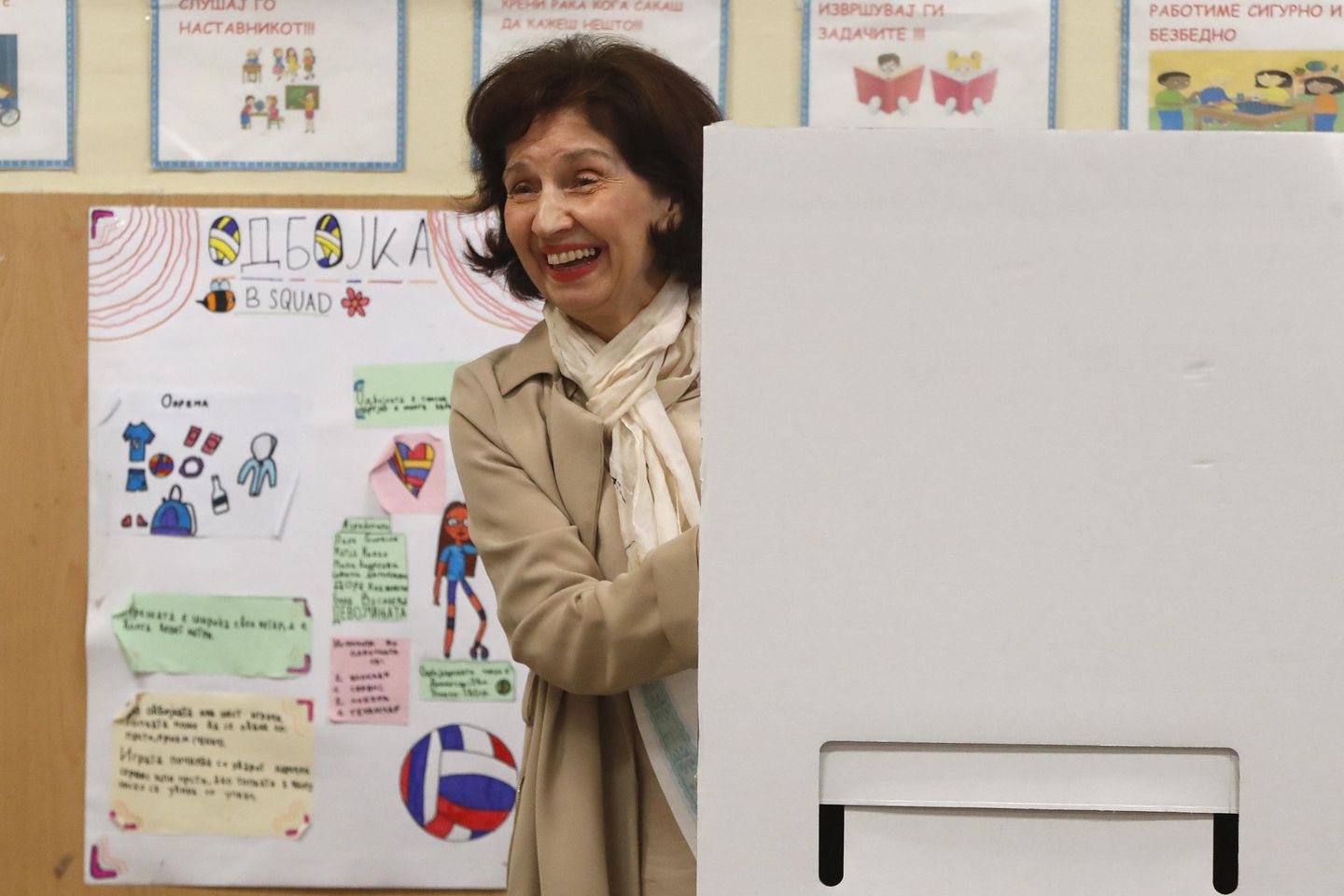
SKOPJE, North Macedonia — Voters in North Macedonia were casting ballots Wednesday for a president they hope will oversee the country’s long-anticipated entry into the European Union,
The small Balkan country has orbited the EU for nearly two decades with little to show for its efforts to join the 27-nation bloc.
A second round of voting is almost certain to follow on May 8 – coinciding with parliamentary elections – as no candidate is expected to exceed the 50% threshold of registered voters required for outright victory.
Seven candidates are running for the largely ceremonial position, with the brief campaigning period focusing on EU accession, the rule of law, fighting corruption and reducing poverty.
State Electoral Commission head Aleksandar Dashtevski said during a morning news briefing that all polls opened on time at 7 a.m. Voting was going smoothly, he said, with only a minor technical problem with biometric devices at some polling centers which was quickly resolved.
The latest poll by the Center for Political Research and Communications gave opposition-backed Gordana Siljanovska Davkova a 3.6 percentage-point lead over incumbent President Stevo Pendarovski.
Pendarovski, 61, is running for a second five-year term with support from the country’s governing social democrats.
Siljanovska Davkova, 70, is backed by the center-right main opposition VMRO-DPMNE coalition.
Pendarovski said Wednesday he expected the electoral process to be “peaceful and transparent.”
“I have no doubt that the first and second round will be in line with the highest European and international standards,” he said.
The two frontrunners have differed on how to deal with neighboring Bulgaria’s insistence on Skopje enshrining in its constitution recognition of a Bulgarian ethnic minority. EU member Bulgaria has said it will otherwise block North Macedonia’s bloc membership bid.
North Macedonia has been a candidate to join the EU since 2005, but membership talks only began in 2022 and the process is expected to take years.
Other presidential candidates include law professor Biljana Vankovska, running for the leftist party Levica, and two members of the ethnic Albanian minority: Foreign Minister Bujar Osmani, and Arben Taravari from an opposition ethnic Albanian party.
Voter Stavre Temelkovski said he had high expectations that North Macedonia would become a full-fledged EU member soon.
“I expect a civic movement to win, for us to be a part of all those pro-Western systems, and to start a process of healing for a state which has waited for almost three decades,” he said. “Many generations are exhausted.”
Unless someone wins outright Wednesday, the two leading candidates will go through to a second round, where turnout must be at least 40% for a valid result.
North Macedonia has 1.8 million registered voters, out of a population of 2.3 million.
Polls are open from 7 a.m. to 7 p.m. (0500-1700GMT) local time. There are no exit polls and the first results are expected early Thursday.
About 320 international observers were monitoring the election.
___
Follow the AP’s coverage of global elections at: https://apnews.com/hub/global-elections/

